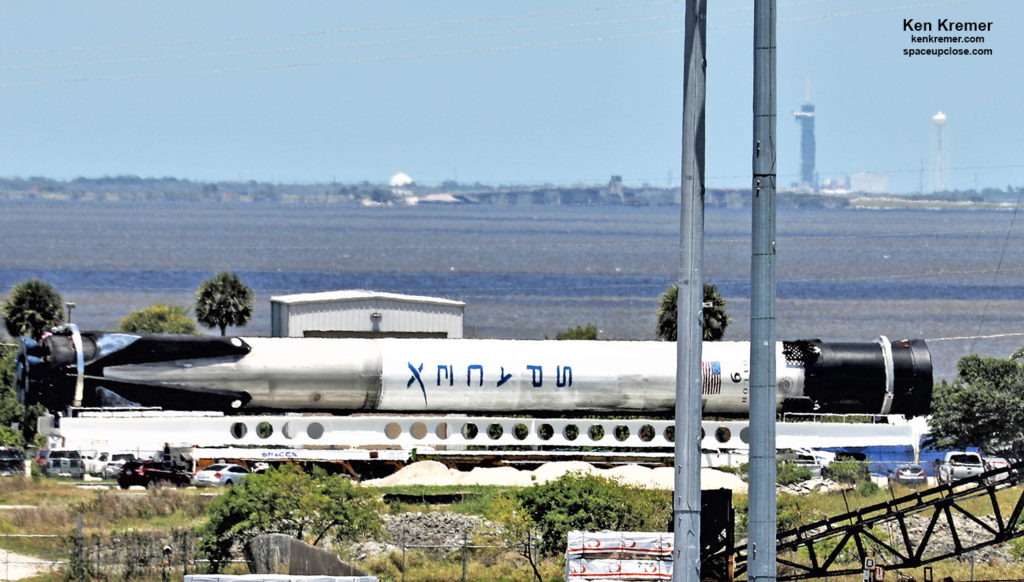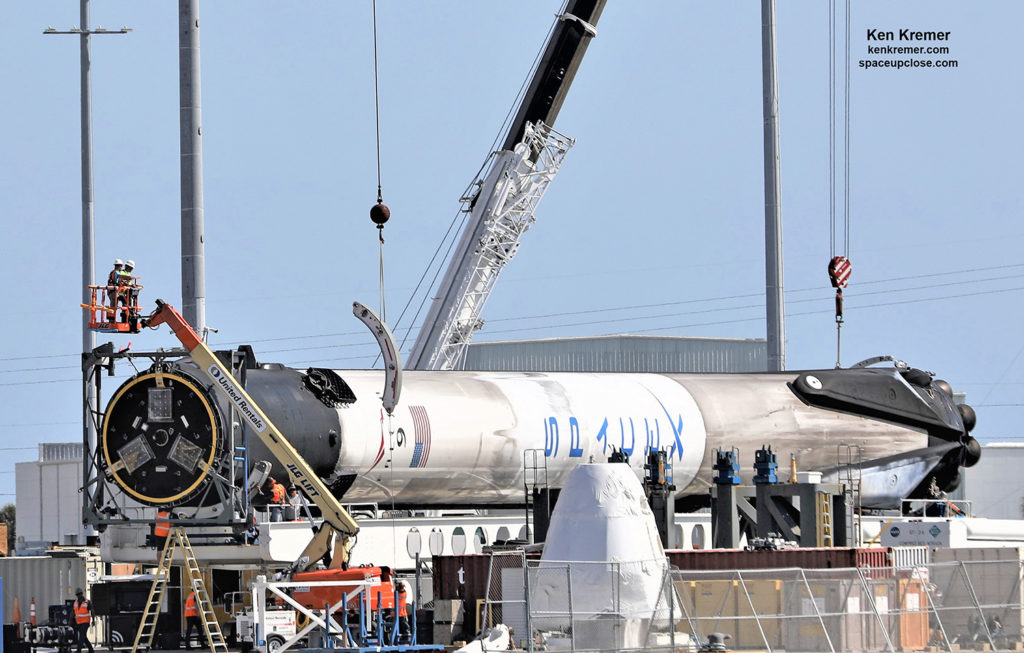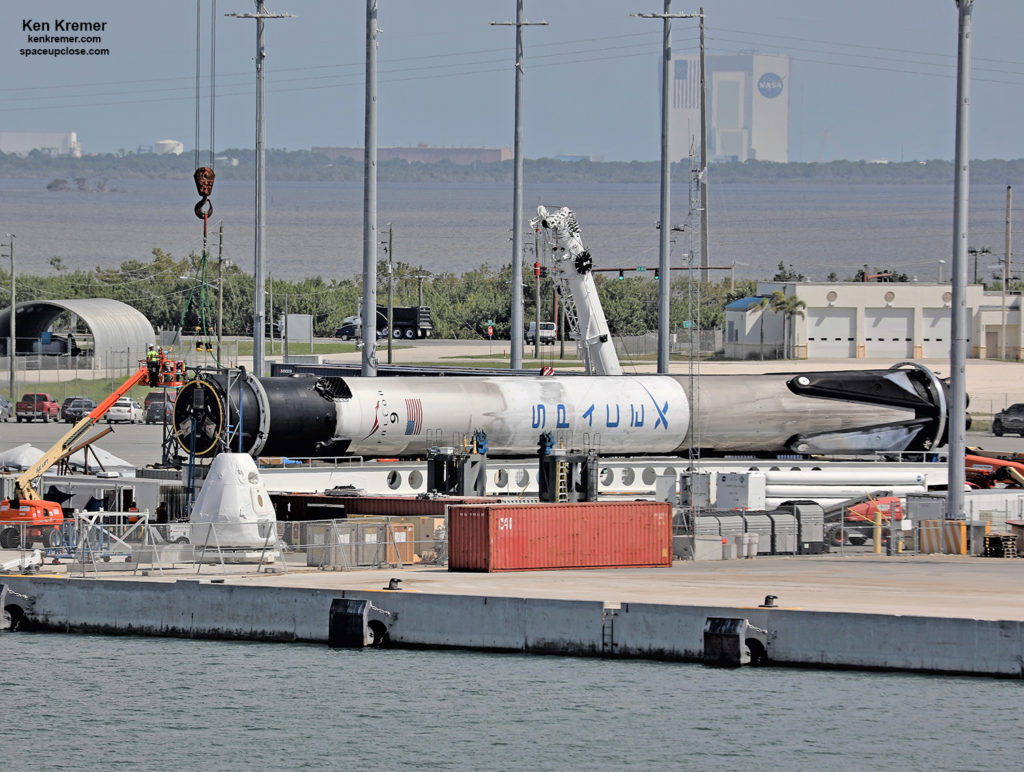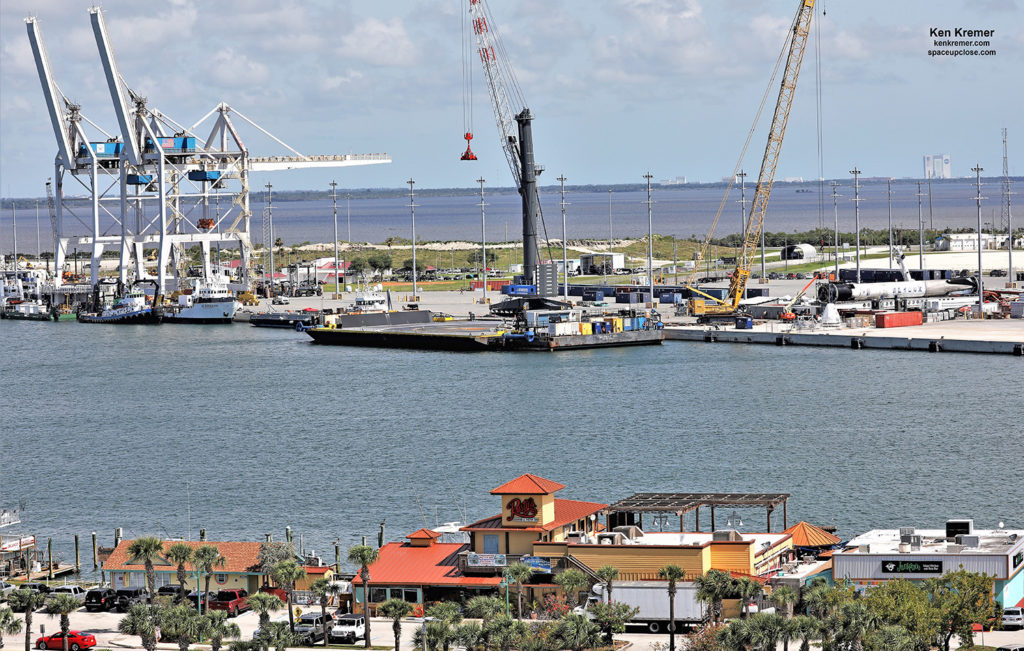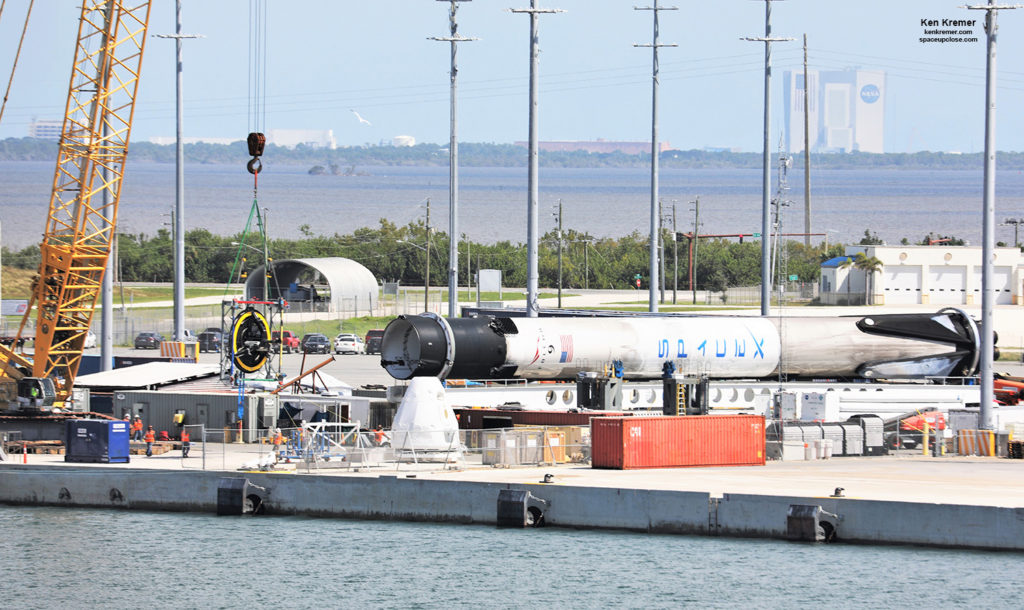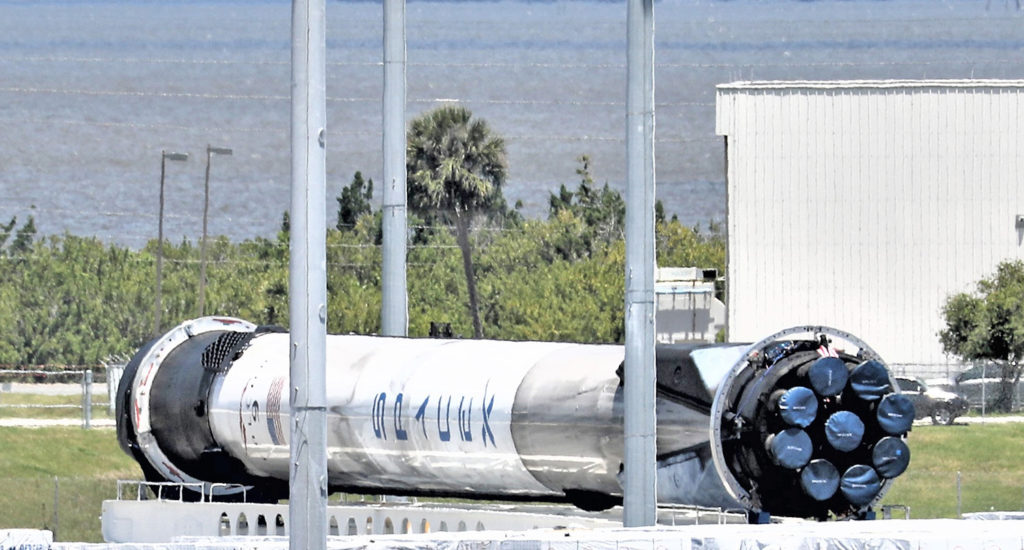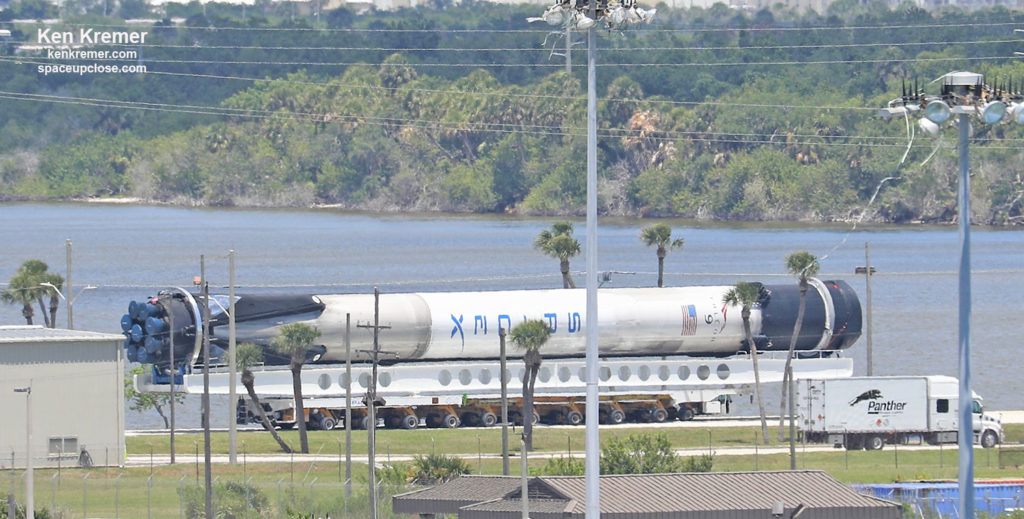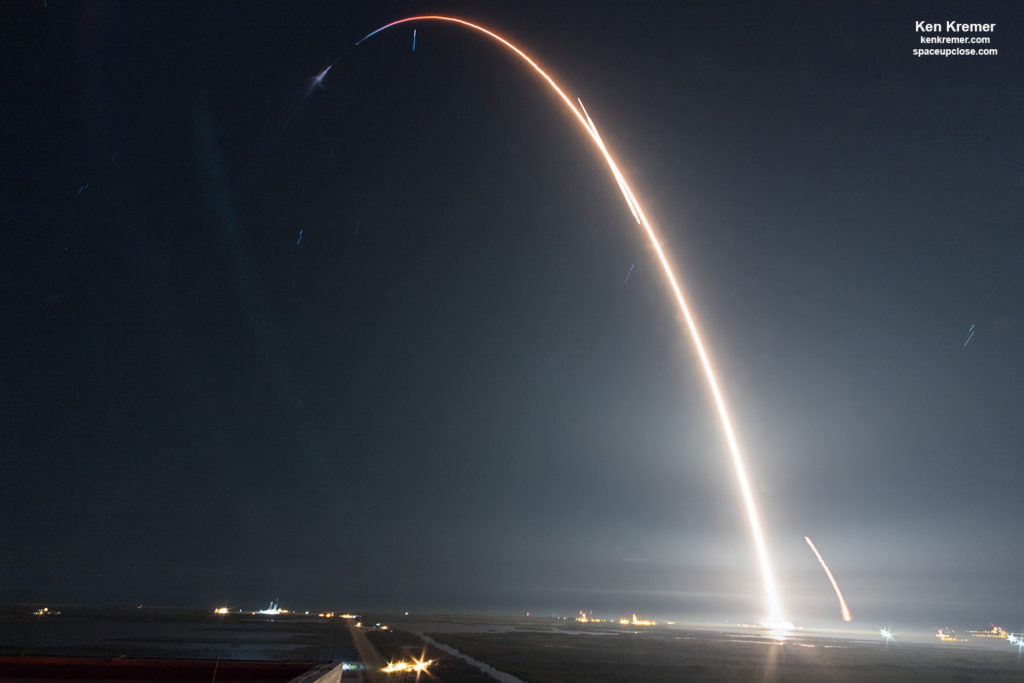Kremer — SpaceUpClose.com &
RocketSTEM – 10 May 2019
PORT
CANAVERAL, FL- Three days after sailing vertically into Port Canaveral on the
OCISLY droneship the landed SpaceX Falcon 9 1st stage booster used
to launch the Dragon CRS-17 cargo freighter to the International Space Station
(ISS) in the middle of the night May 4, became the first one ever to be
transported horizontally back to Cape Canaveral with all four of its landing
legs fully retracted and intact, Wednesday afternoon May 8.
With
this feat, SpaceX achieved a significant milestone towards cutting the turnaround
time for rocket recycling to another blastoff long sought by SpaceX billionaire
CEO and founder Elon Musk.
Enjoy
our belated Space UpClose gallery of imagery documenting all the thrilling action
from onsite at Port Canaveral as we were busy witnessing all the exciting action
this past week – starting with the launch and landing, return to Port, craning
off OCISLY and the first ever fully
successful landing leg retraction operation and transport back to Cape
Canaveral Air Force Station.
Check
back as the gallery grows.
Thus the day when SpaceX
can actually achieve a 24 hour landing-to-launch turnaround is still a ways off
in the future. However, this mission represents clear progress towards Musk’s
goal of rapid reusability.
“One of the biggest reusability improvements
was fast leg stow. Version 1 sometimes took days,” Musk tweeted during the process.
Upon the
successful introduction of the significantly upgraded Block 5 version of the
Falcon 9 exactly 1 year ago in May 2019 SpaceX CEO Musk said the landing legs
would all be retracted as one of the key requirements toward achieving rapid
rocket turnaround for recycled booster launches.
So it was surprising
when that tuned out not to be the case for the first few recovered Block 5
boosters last year.
Overall
it took the SpaceX team nearly 4.5 hours to raise the 4 legs and keep them stowed
against the core stage on May 7 – starting around 2 p.m. EDT and concluding at
nearly 6:30 p.m.
Using
two cranes the booster with the fully retracted landing legs was carefully lowered
horizontally onto the multi-wheeled transporter Wednesday morning May 8.
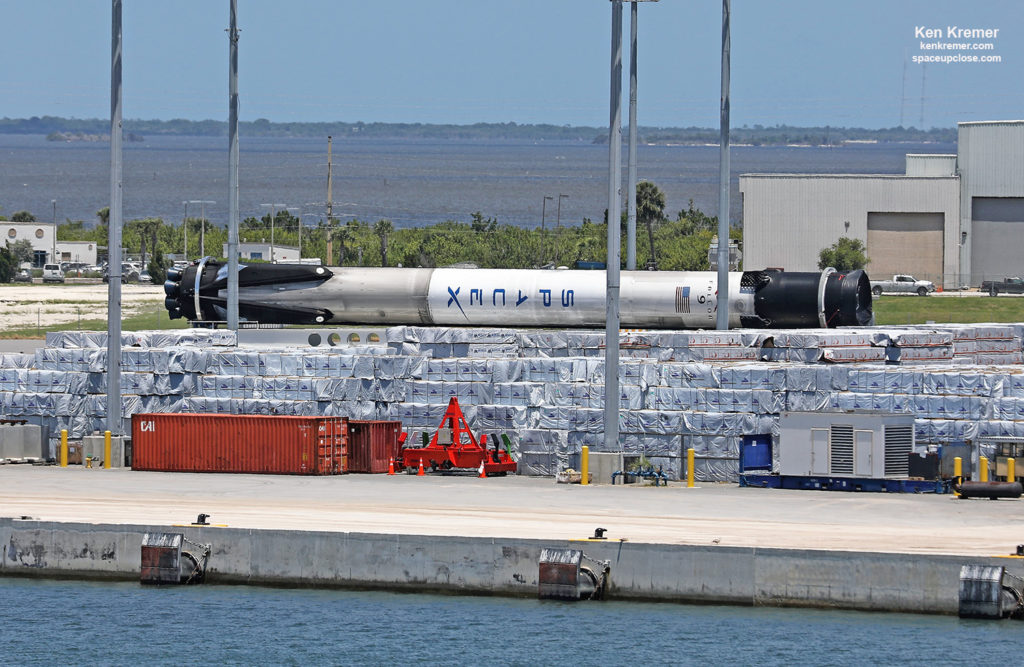 |
| Credit: Ken Kremer/kenkremer.com/spaceupclose.com |
team then basically clamped the booster firmly down onto the transporter by attaching
the remaining ring segments front and back.
The crane
workers also detached the hi tech hoisting device we informally name the BLLRD –
or Booster Lift and Leg Retraction Device rom the top/front and placed in holding
cradle.
p.m. all that preparatory work was completed and the team fired up the
transporter and drove it away from the Port Canaveral berthing site and moved it
without much pause completely through the gates at the Air Force Station.
Soon
SpaceX engineers will inspect the booster and refurbish it for its next
mission.
NASA
and SpaceX managers say that this recovered booster could potentially be recycled
to the next cargo mission to the ISS for the CRS-18 launch as soon as this summer.
The SpaceX Falcon 9 successfully blasted off at 2:48 a.m. EDT (0648 GMT) Friday, May 4 with the unpiloted Dragon CRS-17 cargo ship from Space
Launch Complex 40 at Cape Canaveral Air Force Station in Florida bound for the
ISS with almost 3 tons of science investigations
and supplies and included research into Earth’s carbon cycle, numerous biomedical
and physical sciences investigations and the formation of asteroids and comets.
The Dragon CRS-17 resupply
arrived safely two days later early Monday morning, May 6 loaded with
approximately 5,500 pounds of NASA cargo and science investigations.
The CRS-17 booster model
B1046 had safely touched down on OCISLY some eight minutes after launch May 4
at a spot located just a few miles offshore of the Florida Space Coast beaches
for the first time ever.
about 213-feet (65-meters) tall.
The next SpaceX Falcon 9 launch is tentatively targeted for May 15
at 10:30 p.m. EDT.
Watch my commentary at CBS Orlando WKMG about the SpaceX Cargo
and Crew Dragon mission in lead video:
Crew Dragon testing failure here and the implications for delay in future Crew
Dragon test flights here:
onsite coverage of NASA, SpaceX, ULA, Boeing, Lockheed Martin, Northrop Grumman
and more space and mission reports direct from the Kennedy Space Center, Cape
Canaveral Air Force Station, Florida and Wallops Flight Facility, Virginia.
Stay tuned here for Ken’s continuing Earth and
Planetary science and human spaceflight news: www.kenkremer.com –www.spaceupclose.com – twitter @ken_kremer
– email: ken at kenkremer.com
Dr. Kremer is a research scientist and journalist based in the
KSC area, active in outreach and interviewed regularly on TV and radio about
space topics.
………….
Ken’s photos are for sale and he is available for lectures and outreach events
Ken’s upcoming outreach events:
May
14-16: Quality Inn Kennedy Space Center, Titusville, FL, evenings. Learn more about the upcoming/recent SpaceX
Starlink-1, SpaceX Falcon 9/CRS-17
launch to ISS, Falcon Heavy, SpaceX Demo-1 launch/test failure, SpaceX Beresheet
launch, NASA missions, ULA Atlas & Delta launches,
Northrop Grumman Antares, SpySats and more


